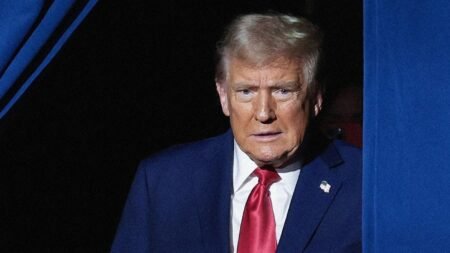Tesla, the top electric vehicle maker, recently faced disappointing results with worse-than-expected revenue from its car business. During the earnings call, CEO Elon Musk was questioned about his vocal support for Donald Trump for president and how it could politicize Tesla’s brand for its mostly Democratic buyers. Musk acknowledged that a second Trump Administration could hurt Tesla’s auto business if EV-related subsidies end, which provide financial benefits for Tesla and make its cars cheaper for consumers. He also mentioned that plans for a plant in Mexico might be reconsidered if import tariffs on autos made there are increased by Trump.
The potential risk for Tesla is greater than just the potential loss of tax credits for buyers. Musk is closely linked to the Tesla brand, and associating it with a climate change skeptic like Trump could cause more consumers to shun it. Analysts point out that Tesla sales in California, a major market for EVs, have declined substantially due to Musk’s public support for Trump. With California being Tesla’s top market, representing 23% of its total volume, the brand damage caused by the association with Trump may be irreparable.
Furthermore, data shows that people who identify as Democrats are more likely to purchase electric vehicles. Musk’s support of Trump could alienate Democratic-leaning consumers who are more likely to be EV buyers, posing a significant threat to Tesla’s bottom line. Civic Science’s research indicates a decline in favorability towards both Tesla and Musk among Democrats, while favorability among Republicans has increased. Musk officially endorsed Trump in July, further cementing his connection with the Republican base.
During the earnings call, Musk focused on Tesla’s robotaxi ambitions and sales of humanoid worker robots to generate excitement about the brand’s future. However, it remains uncertain when these products could contribute meaningfully to Tesla’s earnings. Investor Ross Gerber, who was once a big fan of Musk, has decided to abandon the brand and put his 2021 Tesla Model S up for sale. Despite being in perfect condition with low mileage, Gerber is seeking to sell his vehicle for $70,000, citing his decision to move on.
The declining favorability of both Tesla and Musk among Democrats, coupled with Republican support for Musk but lack of interest in EVs, highlights the challenges facing Tesla as a brand. Musk’s endorsement of Trump and potential alienation of Democratic buyers could significantly impact the company’s sales, particularly in key markets like California. As the partisan divides in America deepen, Tesla will need to carefully navigate its brand image and messaging to maintain its appeal to a wide range of consumers.












